After lawmakers passed a record low number of committee bills in the 2025 general session, the Wyoming Legislature’s governing body voted Tuesday to cut back how often committees meet in the off-season.
Much of the Legislature’s work gets done in the months between sessions, also known as the interim, when lawmakers meet in groups to work through often complicated topics that require more time and resources than what is available during the session.
Committee bills are the outcome of those meetings, where public testimony and input from state agencies and other stakeholders shape the conversation. And since more time, public input and taxpayer money go into such legislation, lawmakers have long prioritized those bills.
But traditions have changed in recent years.
In 2025, 47% of committee bills became law, according to Legislative Service Office records. That’s an all-time low since 2000, when the LSO began tracking those statistics. Last year, committee bills failed on introduction at higher rates than ever before.
Such a shift was one reason why Senate Majority Floor Leader Tara Nethercott, R-Cheyenne, brought a motion at the Management Council’s Tuesday meeting to reduce interim meeting days from six to four for each of the Legislature’s committees.
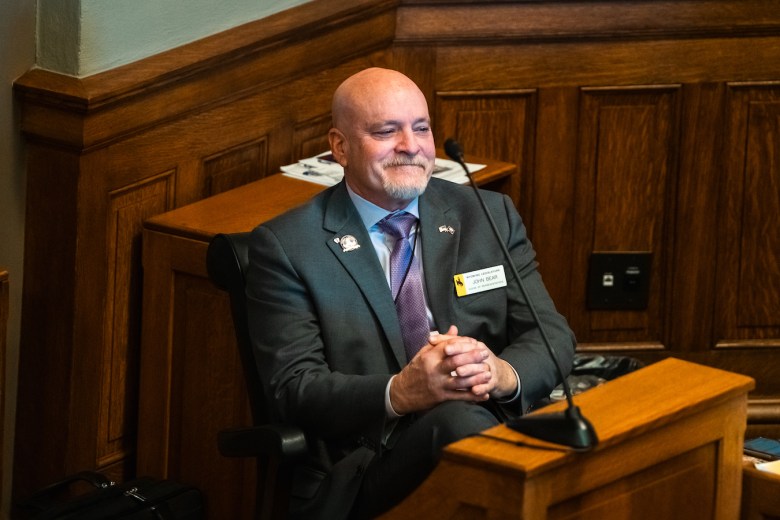
As to why committee bills are failing more frequently, Rep. John Bear, R-Gillette, provided one explanation.
“We had a major ideological shift in the body in this last turnover,” Bear said, referencing the Wyoming Freedom Caucus’ victory in the 2024 election.
The caucus, which Bear formerly chaired, represents the further-right wing of the state’s Republican Party and won control of the House last November.
“And so we saw some considerable changes, and that affects bills that came out of a previous Legislature as committee bills,” Bear said.
That ideological shift also was reflected in another decision lawmakers made this week. More specifically, the council voted to cover travel expenses for lawmakers who attend American Legislative Exchange Council meetings, as it currently does for non-partisan organizations, like the Council of State Governments and National Conference of State Legislatures.
ALEC is a national organization funded by corporate and conservative donors and is known for pushing model bills out to state legislatures — several of which have been introduced in Wyoming. The organization caught headlines in 2012 for allegedly enabling outsized corporate interests in state legislatures. More recently, Business Insider detailed the group’s well-funded efforts, starting at the state level, to rewrite the United States Constitution.
Fewer meetings
In recent years, the Legislature’s interim has officially kicked off with the Management Council meeting in Cheyenne to hear proposed topics from committee chairs before signing off on them. Ahead of that meeting, the public and other stakeholders can make topic and bill suggestions.
But Nethercott’s motion made two other changes to that process. For one, it allowed committee chairs to independently determine topics rather than having Management Council evaluate and approve those proposals. And for committees with a heavier workload that may end up needing more meeting days, the motion permitted them to return to the council to ask for additional days.
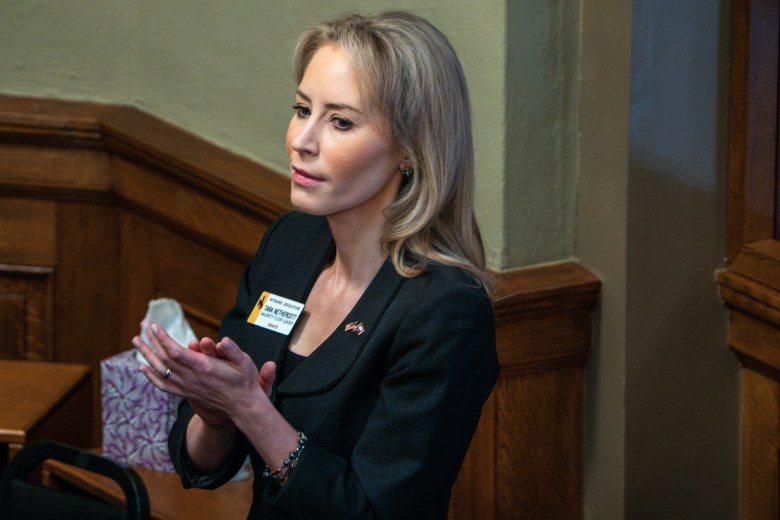
Republican and Democratic lawmakers alike have come to push back on the council for what they see as micromanaging committee work, including House Minority Floor Leader Rep. Mike Yin, D-Jackson.
“I think that the kind of nitpicking over the topic letters creates a situation where not only does the public have to petition their committees during the session and their committee chairman, but then they have to come to [the Management Council] and petition us as well for specific topics,” Yin said. “I don’t think that’s super efficient. I think we have a committee chairman for a reason, and we should basically delegate that ability to them.”
As a former committee chair, Nethercott said she shared that frustration.
“Recognizing that my need for autonomy as a chairman to set the work for the committee is really paramount, and when Management Council kind of tries to micromanage that, it really interferes with the ability of what the committees have decided to do for their interim,” she said.
The reduction in committee meeting days is estimated to save between $120,000 and $140,000, Nethercott said.
While most of the Management Council supported Nethercott’s motion, some chairmen at the meeting pushed back, including several who said they expected to ask for additional days.
“I do believe that your actions in cutting down the interim days is shortsighted,” Senate Transportation, Highways and Military Affairs Committee Chairman Stephan Pappas, R-Cheyenne, told the council.
Echoing comments from Wheatland Republican Rep. Jeremy Haroldson, Pappas described the interim meetings as “educational days.”
“I have a committee that has numerous new members, and in order to bring them [up] to speed in four days, is going to be difficult,” Pappas said.
“I always argued with Senator [Charles] Scott about this. He always said, ‘We do too much in the interim.’ I, frankly, don’t think we do enough to educate our people, especially with the high turnovers that we have,” Pappas said.
Fewer committee meetings also cuts down on opportunities for the public to weigh in, Pappas said.
Ultimately, Pappas said his committee would abide by the shorter schedule but would likely need to cut tours it had planned to take of Wyoming Department of Transportation facilities.
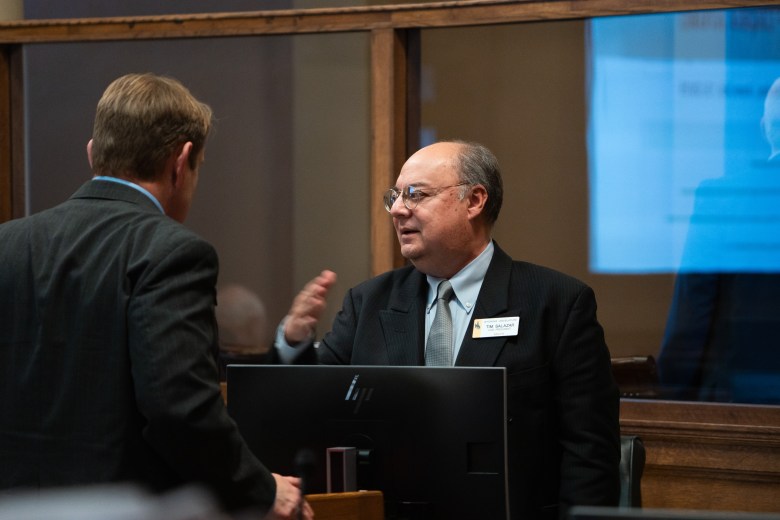
Senate Appropriations Committee Chairman Tim Salazar, R-Riverton, initially expressed concern that the reduced schedule would impair his committee’s work preparing the budget. The motion, however, would not apply to the committee’s two weeks’ worth of budget hearings that take place late in the year, LSO told the council.
Joint Corporations, Elections and Political Subdivisions Committee Co-chair Sen. Cale Case, R-Lander, and Joint Education Committee Co-chair Rep. Ocean Andrew, R-Laramie, both told the council they would need the additional meeting days.
Travel expenses
As a member of ALEC’s board of directors, Sen. Dan Laursen, R-Powell, “is among the vanguard for freedom who dedicate their time and resources to promote limited government, free markets and federalism,” according to ALEC’s website.
Laursen has attended ALEC meetings for most of the decade he’s served in the Wyoming Legislature, he told the council Tuesday.
“For many years, I’ve asked for this,” Laursen said of his request to be reimbursed for travel to two ALEC meetings scheduled for later this year.
The Legislature’s out-of-state travel reimbursement policy covers two meetings during the interim of “a national or regional organization in which the Legislature participates.”
Those organizations include the National Conference of State Legislatures, the Council of State Governments, including the Western Legislative Conference, the Education Commission of the States, the Energy Council, and the State Legislative Leaders Foundation. The latter two are limited to certain lawmakers, while all other out-of-state travel must be specifically approved in advance by the Management Council.
“If you don’t go to those, I think you should be able to go to the ones like this, so that’s my request,” Laursen said.
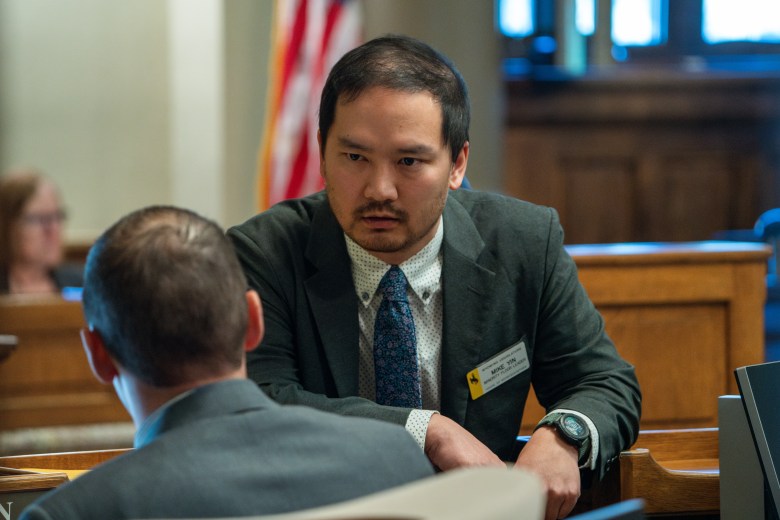
Senate President Bo Biteman, R-Ranchester, said he understood where Laursen was coming from.
“I’m not going to throw one of [those] organizations under the bus, but I went to one of them and wasn’t impressed,” Biteman said. “It just wasn’t — it did have kind of a liberal bent to it. I didn’t enjoy any of the programming.”
“I always thought, ‘Why can’t we pick something that’s more geared toward our interests and what we’re trying to accomplish as legislators in our limited time doing this job?’” he said.
LSO estimated that Wyoming pays between $150,000 and $200,000 to NCSL and between $100,000 and $125,000 to CSG in annual dues, which are calculated according to a percentage of the total state budget.
“Both those organizations offer quite a few scholarships to members and to staff to attend their trainings that are also taken up,” LSO Director Matt Obrecht told the council.
But the cost concerned some council members, including Salazar.
“I believe that at our next Management Council meeting, we would ask NCSL, CSG, to come, given the cost that some of us have just discovered, the cost of those, and then we could have a discussion as to the future of whether or not we want to participate,” Salazar said.
Yin, who currently serves as CSG West’s chair, stood by the value of those memberships and said, “there are things that our dues pay for that aren’t just the trips to the meetings.”
The Management Council’s next meeting has not yet been scheduled.
Correction: This story has been updated to correct Sen. Stephan Pappa’s chairmanship. —Ed.


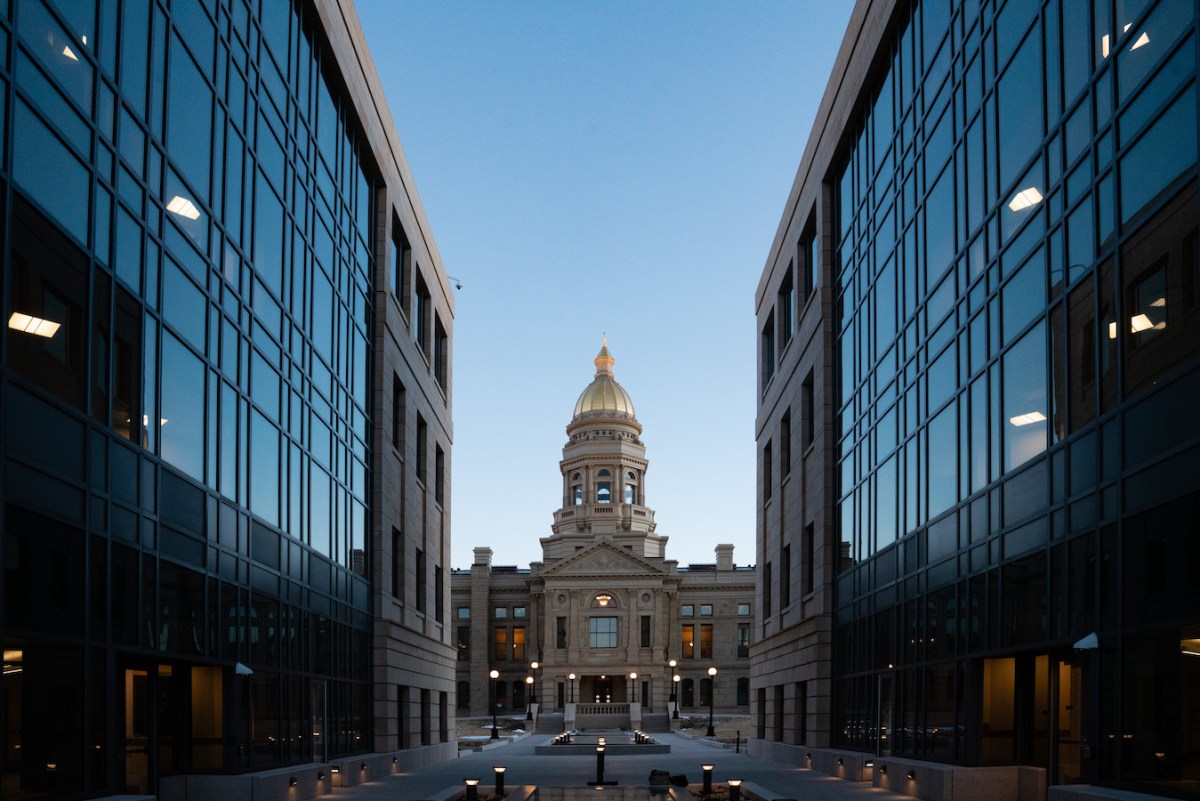
While I want my representatives to be conscientious about how our money is spent, that doesn’t mean I want them to do less of a job. The interim session is not expendable, it is invaluable. I want my representatives to be looking at issues, learning all they can about the concerns of their constituents and exploring the best possible ways to address these in the upcoming legislative session. This decision to minimize this work reflects the lack of respect those in the majority have for the work they were elected to do.
The interim meetings are not just a means of creating committee bills; they are used to educate members on complex issues facing Wyoming. All legislators benefit from these educational opportunities. Although I am not surprised, I am disappointed that the Freedom Caucus does not see the benefit of educating the legislature’s members.